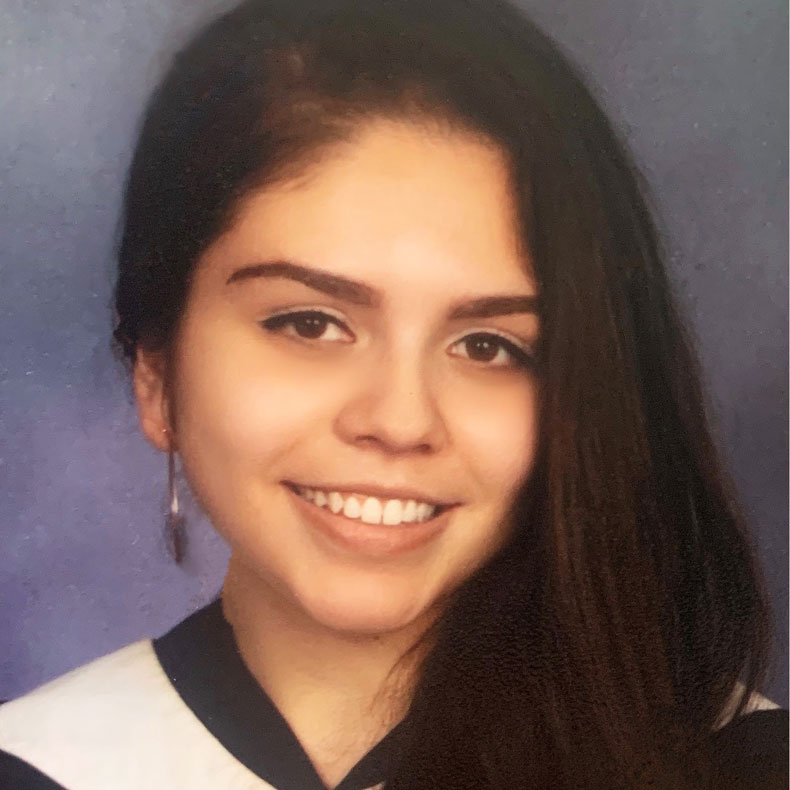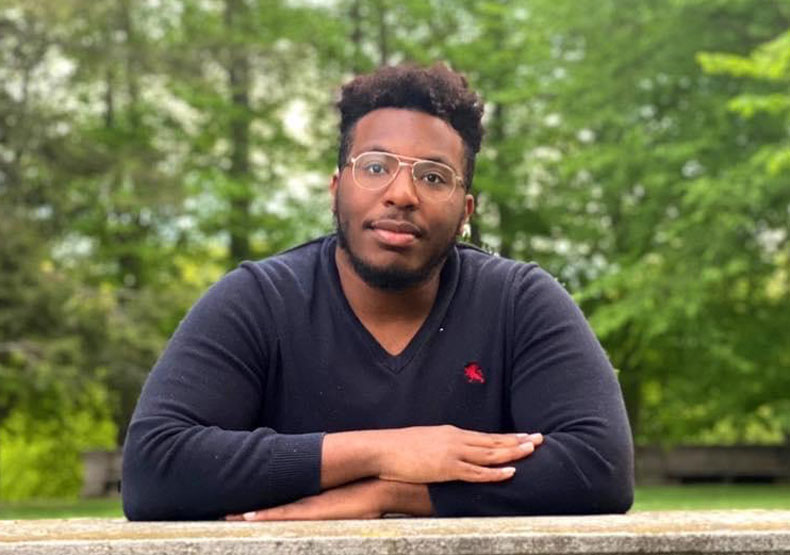Specialized Training and Academic Retention (STAR) Fellowship Program
From the Center for Workforce Development
The Specialized Training and Academic Retention (STAR) Fellowship aims to diversify the behavioral health workforce by retaining students who are underrepresented in the clinical psychology field, and equipping them with the knowledge, skills, and training to provide culturally responsive services in primary care settings and medically underserved communities (MUCs). The STAR Fellowship is funded by the Health Resources and Services Administration’s Scholarships for Disadvantaged Students (SDS).
The SDS is a federal initiative that seeks to increase the (1) number of graduates practicing in primary care settings, (2) retention of full-time students from disadvantaged backgrounds including students who are members of racial and ethnic minority groups, and (3) number of graduates working in medically underserved communities. It provides scholarships to students from disadvantaged backgrounds who have a demonstrated financial need, are enrolled full-time in a health profession program, and have a strong commitment to working with unserved and underserved populations.
“I grew up in Staten Island, New York, in a predominantly Hispanic and Black community where my family, friends, and neighbors experience numerous adversities because of their race and immigrant status, and have limited access to medical and mental health services due to language barriers and a lack of financial resources. Addressing these health disparities in communities of color is what has influenced my passion to work as a bilingual clinician providing trauma-based mental health services to immigrants and refugees transitioning into the U.S., and to other individuals, families, and groups in underserved communities... The STAR Fellowship is making this dream a reality.”
Angela Mendez (2020-2023 STAR Fellow)
“My parents immigrated to the United States from Trinidad and Jamaica. I grew up in a neighborhood that opened my eyes to the internal struggles that individuals and families in underserved communities experience on a daily basis. As a result, I have dedicated my time and career to being involved with social justice issues, social advocacy, community service, and volunteering. For me to be an effective clinician, I have to know and understand the issues that are plaguing my community and, more importantly, develop the skills to promote healthy relationships with the individuals, families, and communities that I serve.”
Barrington Latham (2020-2023 STAR Fellow)
Program Details
The STAR Fellowship Program is housed within the Clinical Psychology Department at William James College. Its primary objectives are to:
- Provide 20 scholarships annually to eligible students from backgrounds underrepresented in the clinical psychology field (e.g., first-generation college students, students from low-income communities) who are currently enrolled in WJC’s Clinical Psychology Program and have a demonstrated financial need. Each student will be awarded $32,500 annually to cover the costs of tuition and fees.
- Facilitate access to culturally-focused academic training to promote greater awareness of, and commitment to, careers in medically underserved communities (MUCs) and/or primary care settings.
- Offer culturally-focused field training opportunities for awardees to work with unserved populations and in underserved communities.
- Provide mentorship and career counseling to support the successful retention and training of students who are underrepresented in the field of clinical psychology.
- Foster a sense of community belongingness and peer cohesion through the provision of social-cultural and professional development activities.
- Facilitate academic and professional development success in graduate school by linking scholarship awardees to academic resources and student support services at WJC.
- Evaluate the program’s impacts on the career choices of scholarship awardees by tracking the number of graduates who practice in primary care settings and in medically underserved communities.
Based on HRSA’s SDS requirements, an “eligible individual” is a student who (1) is from a disadvantaged background (as defined below), (2) has a demonstrated financial need for a scholarship, and (3) is enrolled (or accepted for enrollment) as a full-time student in an academic program leading to a degree in a health profession (e.g., Clinical Psychology).
The term “disadvantaged background” refers to an individual who comes from either an economically disadvantaged or an educationally/environmentally background:
- Economically Disadvantaged – means an individual comes from a family with an annual income below a level based on low-income thresholds, according to family size established by the U.S. Census Bureau, adjusted annually for changes in the Consumer Price Index and adjusted by the Secretary of the U.S. Department of Health and Human Services
- Educationally/Environmentally Disadvantaged – means an individual comes from an environment that has inhibited the individual from obtaining the knowledge, skills, and abilities required to enroll in and graduate from a health professions school, or from a program providing education or training in an allied health profession
Students receiving financial support from the HRSA-funded SDS program must be a citizen or national of the United States, or a lawful permanent resident of the United States, or a foreign national having in their possession a visa permitting permanent residence in the United States.
The following students are not eligible for the STAR Fellowship:
- Students who are not currently enrolled or have not been accepted for enrollment at William James College.
- Students who have been awarded the Serving the Underserved Scholarships.
- Students who have received a substantial merit award or other scholarships at William James College.
- Students who receive stipends from the HRSA-funded Graduate Psychology Education Program, the Opioid Workforce Expansion Program or other federal grants.
- Students who are in their 4th year (or higher) or those who will be completing an internship at the time the scholarship is awarded.
- Applications for the STAR Fellowship are reviewed on an annual basis. A call for new applications is typically issued in the spring (e.g., May/June) and an announcement is disseminated to the Clinical Psychology Department.
- Please note that only students who are currently enrolled in the Clinical PsyD Program or have accepted an offer of admission are eligible for the STAR Fellowship. Prospective candidates who have not accepted an offer of admission to the College are not eligible for this scholarship.
- Clinical PsyD students will be required to complete an application form via Qualtrics and submit a résumé.
- Applicants must also fill out a Free Application for Federal Student Aid (FAFSA) form through the Financial Aid Office.
- A Scholarships Selection Committee, comprised of the STAR Fellowship Program staff, will conduct a rigorous application review.
- Applicants for the scholarships will be evaluated based on a combination of factors, including academic achievement and demonstrated financial need, as shown on their FAFSA form.
- Following the application review process, the Scholarships Selection Committee will identify a core group of finalists and invite them for an interview via Zoom.
- Awardees will be chosen based on demonstrated financial needs, backgrounds (i.e., first-generation college students, low-income), academic achievement, motivation to work with underserved populations, and career interests in practicing in medically underserved communities and/or primary care settings.
- To be eligible for future funding, awardees must re-apply on an annual basis and demonstrate satisfactory academic progress, fulfillment of their academic and field placement responsibilities, and continued financial need, per their FAFSA form.
Scholarship awardees in the Clinical PsyD Program will:
- Pursue academic training with underserved populations (e.g., Asians, Blacks, Latinos, children, older adults, etc.) through concentrations offered at WJC.
- Seek field education experiences at training sites that are located in areas that serve low-income families, ethnic/racial minority individuals, linguistic and sexual minority groups, immigrants, and other unserved and underserved populations.
- Obtain mentorship, career counseling, and academic support throughout their engagement with the STAR Fellowship Program.
- Participate in professional development and social-cultural activities designed to retain students in the program, enhance their sense of group cohesion, and strengthen their social connections with the WJC community.
- Engage in volunteer/community service opportunities at WJC and/or with local agencies that serve culturally and socioeconomically diverse communities.
Additionally, awardees must remain in good academic standing throughout their enrollment in the STAR Fellowship Program. They must also submit a FAFSA form annually to determine financial eligibility for the scholarship.
The HRSA-funded STAR Fellowship Program is administered by

Dr. Gemima St. Louis
Program Director

Dr. Natalie Cort
Associate Director
STAR Fellowship Announces First Cohort
Funded by the Health Resources and Services Administration’s (HRSA) Scholarships for Disadvantaged Students, the STAR Fellowship program aims to equip students with the knowledge, skills, and training to provide culturally responsive mental health services in primary care settings and medically underserved communities.
Read how our students are making a difference

